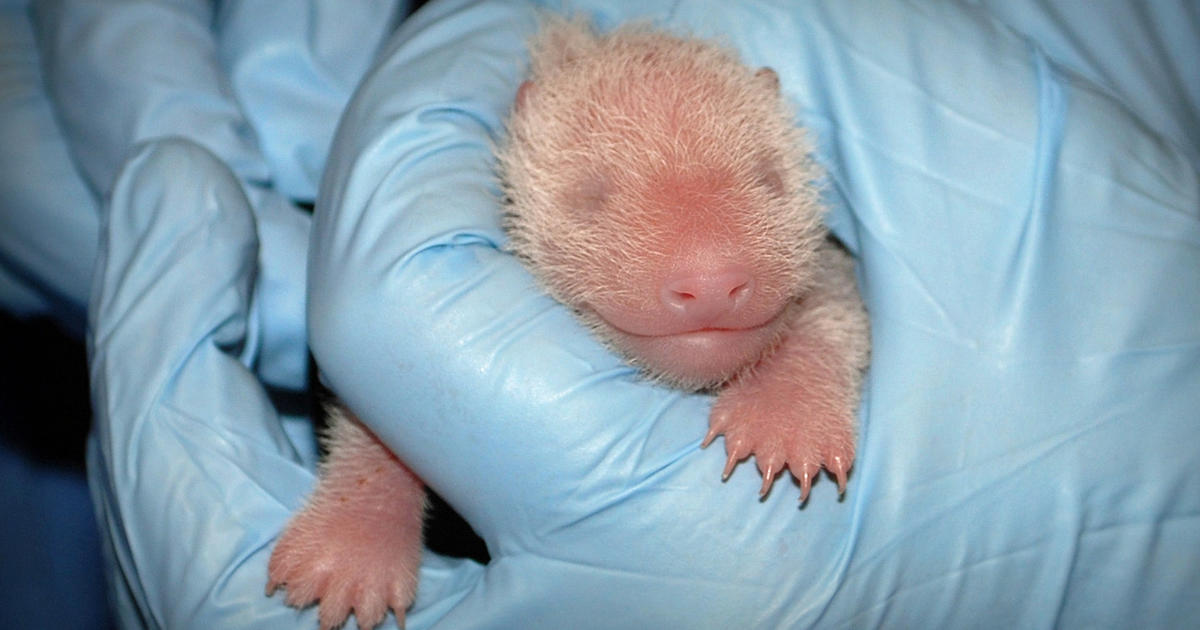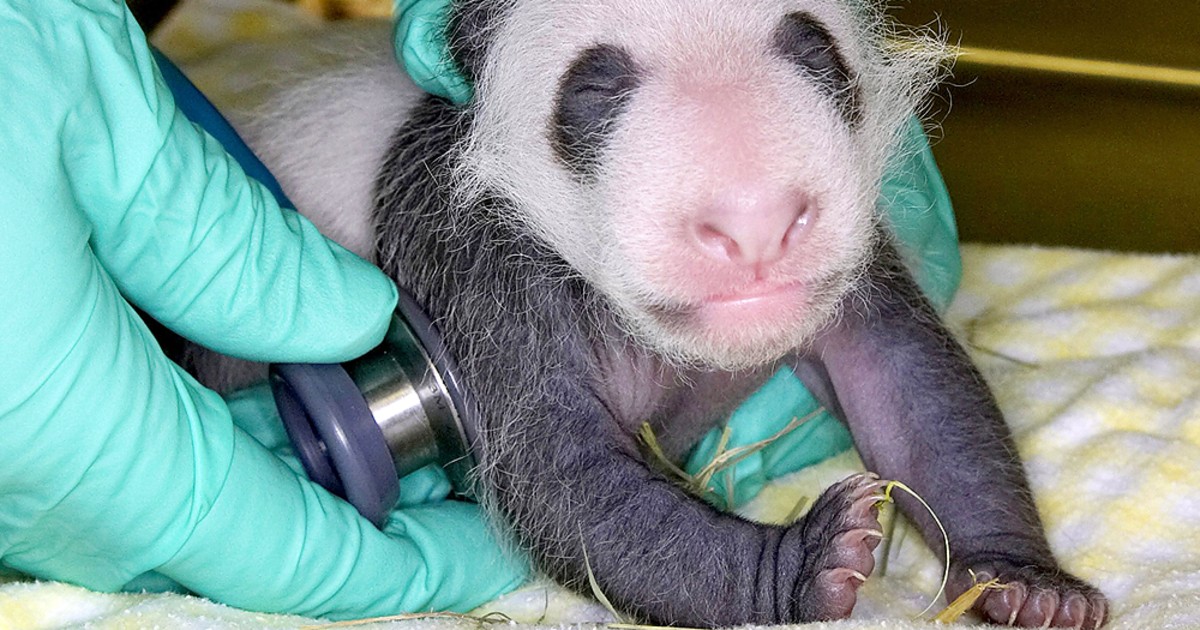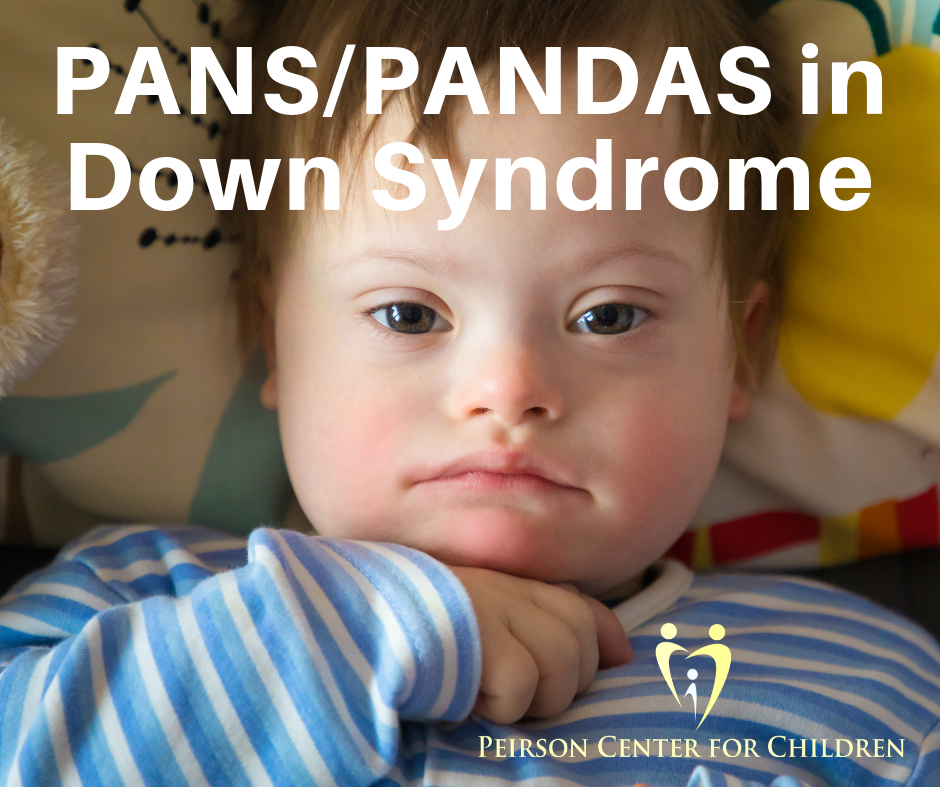
Creative video Ads VIPAL Environmental Awareness Ads
Pediatric Acute-onset Neuropsychiatric Syndrome (PANS) is a clinical diagnosis given to children who have a dramatic - sometimes overnight - onset of neuropsychiatric symptoms including obsessions/compulsions or food restriction.

National Zoo’s Young Giant Panda to Go to China per Agreement Smithsonian Institution
Moodiness, irritability, and crying or laughing at inappropriate times. Sensory problems, including being very sensitive to light and possibly seeing or hearing things that aren't there. Sleep.

Monday (monkey/panda) r/HybridAnimals
PANDAS is a subtype of pediatric acute-onset neuropsychiatric syndrome (PANS). The main neuropsyciatric symptoms are the presence of obsessive-compulsive disorder (OCD) and/or tics (uncontrolled, sudden, repetitive movements or sounds), which are severe enough to interfere the ability to function.

Pictures of the day 16 July 2012
The term 'PANDAS' is short for 'Pediatric Autoimmune Neuropsychiatric Disorder Associated with Streptococcus' (The word streptococcus is often shortened to 'strep'). A child can be diagnosed with PANDAS when: Obsessive Compulsive Disorder (OCD) or tic symptoms suddenly appear for the first time, OR The symptoms suddenly get much worse, AND

Panda sneezes.
Pediatric autoimmune neuropsychiatric disorders associated with streptococcal infections (PANDAS) syndrome is a childhood disorder that involves sudden changes in personality, behavior, and movement. It is caused by the immune system's overreaction to streptococcal (strep) infection, not the infection itself.

Panda cub at D.C. zoo "vibrant, healthy and active" CBS News
The core symptoms of PANS are OCD-like behaviors or restricted eating. Motor tics are also a symptom of PANDAS. In addition to more well-known OCD behaviors such as handwashing or counting, children may have obsessive thoughts about food. They may change their eating habits because of contamination fears, fears of choking, vomiting, or.
Bears With Down Syndrome A chromosome is a as a result people born with down syndrome face
Pediatric Acute-onset Neuropsychiatric Syndrome (PANS) is a childhood condition characterized by the sudden onset of obsessive-compulsive symptoms (OCD) and/or eating restrictions following a bacterial or viral infection, including COVID-19. These sudden changes often appear in combination with behavioral and neurological changes such as new.

San Diego Zoo says of panda cub 'It's a girl!'
PANS (Paediatric Acute-onset Neuropsychiatric Syndrome) PANS is a neuropsychiatric condition which is triggered by a misdirected immune response to a variety of triggers, resulting in a constellation of symptoms as outlined below. PANS is a clinical diagnosis and there is no specific test which will prove or disprove the condition.

Pictures show first 5 months of first panda born in France Daily Mail Online
We believe children who develop PANS or PANDAS have a genetic predisposition for these syndromes, which are triggered by an environmental stressor, often an infection. With PANS, that trigger is unknown. PANDAS is thought to be triggered by a Streptococcal infection. Blood tests conducted on children with PANS may show signs of inflammation.

Pin on Adorable Animals with Down Syndrome
PANDAS is the acronym for Pediatric Autoimmune Neuropsychiatric Disorders Associated with Streptococcal infections. PANDAS is a subset of PANS. Guidelines for diagnosing PANDAS include: Presence of OCD and/or tics Symptoms begin between age three and puberty Acute-onset and episodic (relapsing-remitting) course

white tiger with down syndrome . Animals . Pinterest Down syndrome, Tigers and White tigers
While PANDAS/PANS is a lesser-known, often misdiagnosed disorder, providers play a key role in helping patients and families deal with this condition. We've collected some frequently asked questions for providers about diagnosis, treatment and more. How can PANDAS/PANS affect school participation?

Zoo Day Down Syndrome Association of Pittsburgh Trying Together
PANDAS is an autoimmune condition that occurs following infection with Group A Streptococcus (strep). This disease is categorized as Pediatric Acute-onset Neuropsychiatric Syndrome (PANS). Therefore, PANDAS is a type of PANS. In other words, PANDAS without strep is PANS. Other causes of PANS involve other infections such as Borrelia burgdorferi.

PANS/PANDAS in Down Syndrome
PANDAS syndrome is a group of mental health conditions that suddenly appear in a child after a strep infection. Learn about the causes, symptoms, and treatment.

Video Shows People With Down Syndrome Dressed As Animals In 'Endangered Species' Bid
Overview What is PANDAS syndrome? PANDAS is short for "pediatric autoimmune neuropsychiatric disorders associated with streptococcal infections." It describes a group of conditions thought to affect select children who've strep infections, such as strep throat or scarlet fever.

Panda bears spend at least 12 hours each day eating bamboo. Pandas grasp bamboo stalks with
PANDAS is short for Pediatric Autoimmune Neuropsychiatric Disorders Associated with Streptococcal Infections. A child may be diagnosed with PANDAS when: Obsessive-compulsive disorder (OCD), tic disorder, or both suddenly appear following a streptococcal (strep) infection, such as strep throat or scarlet fever.

Ami Vitale’s new book, Panda Love The Secret Lives of Pandas Daily Telegraph
Since first defined in 1998 (), paediatric autoimmune neuropsychiatric disorders associated with streptococcal infections (PANDAS) and its later, broader iteration, paediatric acute-onset neuropsychiatric syndrome (PANS), have garnered significant attention and controversy.The role of streptococcal infection in children with explosive onset obsessive-compulsive disorder (OCD) and new onset.